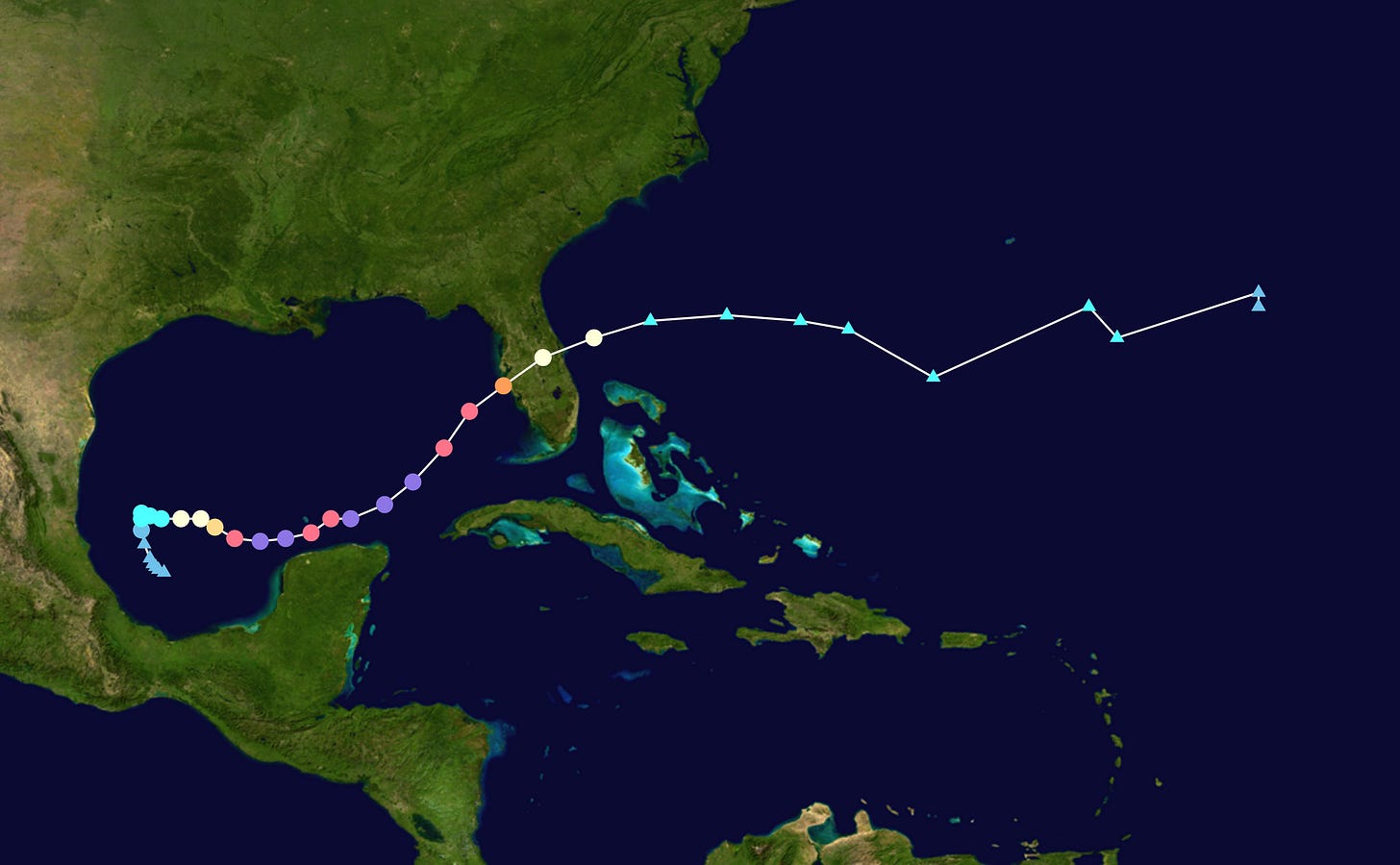Scientists Say
On the reputational collapse of a critically important institution.
“Doubt is not a pleasant condition, but certainty is absurd.” – Voltaire
Months ago, as winter turned to spring, the annual ritual of predicting the severity of the upcoming hurricane season was in full swing. In a consensus rivaling the foundational belief in climate change itself, scientists, activists, and journalists were convinced that 2024 would deliver a parade of devastating storms. Both the count and impact of such events were sure to skyrocket. The news was saturated with dire forecasts like those reported by National Public Radio in late May:
“This year’s Atlantic hurricane season is expected to be extremely active, putting tens of millions of Americans in the eastern half of the country at risk from flooding and damaging winds, forecasters at the National Hurricane Center warn. The increased activity is partially caused by abnormally warm ocean temperatures driven by climate change.
Forecasters expect 17 to 25 storms to form in the Atlantic between June 1 and the end of November. At least 8 of those are forecast to be full-blown hurricanes, as opposed to weaker tropical storms. And 4 to 7 are expected to be major hurricanes, with winds powerful enough to uproot trees, destroy mobile homes and damage other buildings.”
Early signs seemed to support this view, with Hurricane Beryl rapidly achieving Category 5 status while still over water in early July. Luckily for the residents of the US Gulf Coast, Beryl weakened significantly before making landfall as a mere Category 1 storm. To be sure, the hurricane caused widespread flooding and dozens of fatalities, but the broad consensus is that things could have been significantly worse.
A funny thing happened after Beryl. Well, actually, not much happened at all. The rest of July and the month of August were mostly quiet, with only Hurricane Debby making landfall in Florida as a Category 1 storm. As August was coming to a close, scientists began to openly question why things were so calm. By early September, CNN found an expert willing to pin the lack of hurricanes on—you guessed it—climate change. Here is a key passage from its report:
“Despite ideal conditions that fueled pre-season predictions of upwards of 20 named storms, the immediate prospects for one are low, and none have formed in the Atlantic since Ernesto in mid-August – a streak unmatched in 56 years.
‘If you had told me a month ago that nothing would (develop) after Ernesto I wouldn’t have believed you,’ said Phil Klotzbach, a hurricane expert and research scientist at Colorado State University. ‘It’s really surprising.’
The strange season has been influenced by extreme atmospheric conditions that are a byproduct of climate change driven by fossil fuel pollution, experts said. And it could also be a ‘lens’ into the more volatile storm behavior of the future, said Matthew Rosencrans, lead hurricane season forecaster with NOAA’s Climate Prediction Center.”
Regular programming returned with the late-season storms Francine, Helene, and Milton, with the latter two wreaking catastrophic damage across their respective impact zones. Although neither formed over the Atlantic, both hurricanes drew upon exceptionally warm water temperatures in the Gulf of Mexico to become major storms. In a classic example of goal-seeking analysis, the Financial Times dutifully reported that scientists knew all along there would not be many hurricanes this year, but the ones that did form would be unusually strong, even tossing in a bit of false precision in attribution for good measure:
“The intensity of the deadly hurricane that hit Florida this week and left millions without power was worsened by human-driven climate change, a group of international scientists has found. Global warming made the winds associated with Hurricane Milton about 10 per cent stronger and increased rainfall by 20-30 per cent, according to a rapid analysis by the World Weather Attribution group…
‘The total number of hurricanes is not expected to change, but the number of very strong hurricanes (category 4 or 5) is,’ said Karsten Haustein, a climate scientist at Leipzig University. ‘Hurricanes require a moist atmosphere, warm ocean temperature and little wind shear.’Haustein said Milton had been the ‘perfect example’ of the tendency of hurricanes to ‘grow stronger quicker’ as the planet warms.”
Contrary to what you may be thinking, this is not a piece about climate change. Instead, the motivation for this dispatch arises from what the narrative arc of the 2024 hurricane season teaches about the state of modern science itself. For reasons that are largely justified, sizable swaths of the population no longer trust the credentialed class, and the “expert” moniker has undergone a decisively negative semantic shift. How did this situation arise and what, if anything, can be done about it? Let’s don a lab coat, break out the microscope, and inspect things a little more closely.


